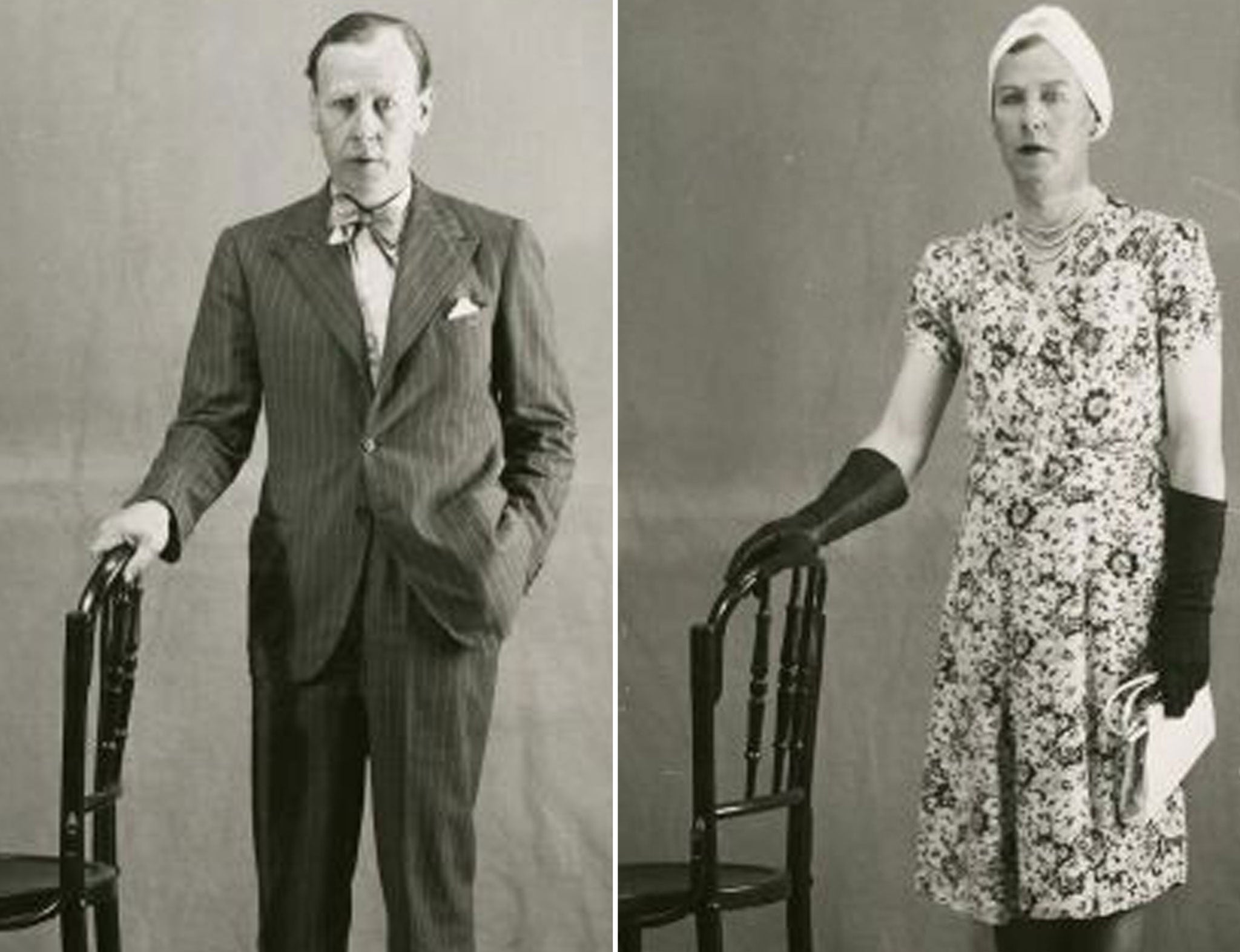Lieutenant Colonel Dudley Clarke: The cross-dressing spy who was arrested on a secret mission
One of Britain’s top spies set alarm bells ringing in Whitehall because of his penchant for dressing up

Papier-mache horse carcases, a ship camouflaged as an island and tanks made from garbage are just some of the strangest disguises reportedly used during wartime. One British intelligence officer caused embarrassment to his political masters through his penchant for dressing up as a woman, according to official papers made public today.
Lieutenant Colonel Dudley Clarke, a ‘key figure in British intelligence’ in the Middle East in the Second World War, set alarm bells ringing in Whitehall when he was arrested dressed as a woman.
Files released publicly by the National Archives reveal that Lt Col Clarke told Spanish police he was a novelist and had “wanted to study the reactions of men to women in the streets” after he was detained in Madrid.
The spy who was on his way to Egypt in October 1941, undercover as a war correspondent for The Times - when he was stopped by officers after being spotted “in a main street dressed, down to a brassiere, as a woman” - according to correspondence by British embassy staff to London.
When the British consul visited him, they found Lt Col Clarke “unconcerned” by the potential political fallout of his arrest but instead offered a different story, claiming he had been taking the clothes to a woman in Gibraltar and had put them on as a “prank”.
“This hardly squares with the fact that the garments and shoes fitted him,” the embassy noted wryly.
The Spanish police treated the incident as a “homosexual affair” and released Lt Col Clarke with a fine but German intelligence believed it was a “first class espionage incident” which they were determined to exploit publicly.
“I need hardly point out the damage this incident will do to us and The Times here,” the embassy warned superiors back in Britain. “Jokes have already begun about 'the editor' of The Times masquerading as a woman.”
The correspondence also revealed the contents of his suitcase: “His luggage contained another complete set of women’s clothes, a war correspondents uniform and a note book with a number of names of people in London in it.
“Also papers and a roll of super fine toilet paper which particularly excited the police who are submitting each sheet too chemical tests.”
The potential for embarrassment was considered so great that British Prime Minister Winston Churchill was informed, and instructions were sent to get Lt Col Clarke to the safety of Gibraltar as quickly as possible.
Join our commenting forum
Join thought-provoking conversations, follow other Independent readers and see their replies
Comments
Bookmark popover
Removed from bookmarks